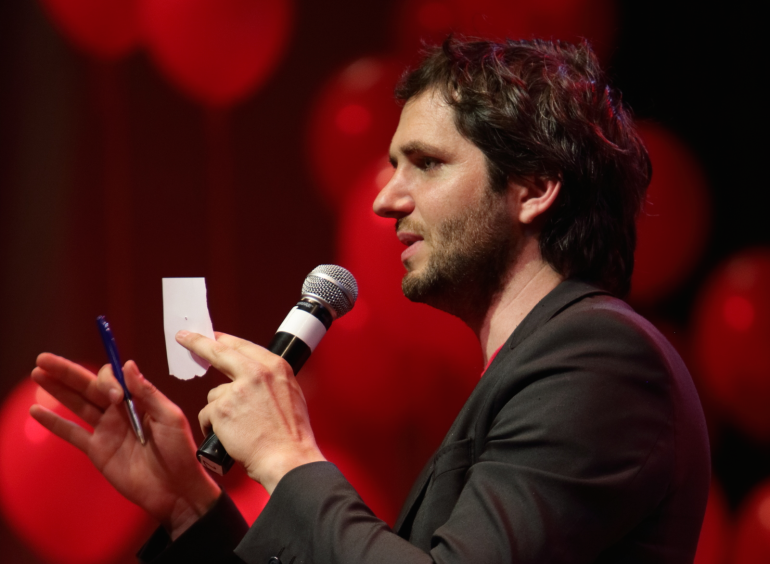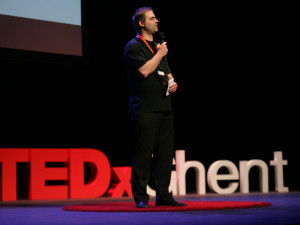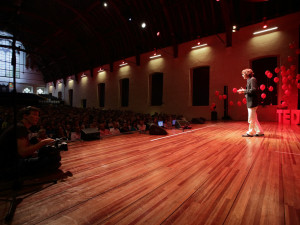
Lieven Scheire, known for his ingenious tv-shows, will be hosting the upcoming TEDxGhent event. Previous editions have already proven that this is a great match. But why is it that he keeps coming back to us? Let’s find out in an interview with the man himself.
TEDxGhent: Hi Lieven, what is your history with TED and TEDxGhent?
Lieven Scheire: I found out about TED some 4 or 5 years ago, when friends and colleagues started sending me these TED-talks. I was intrigued and dove right into the TED site. I didn’t know about TEDx, until I discovered TEDxBrainport, an event organized by Brainport Eindhoven. So when TEDxGhent talked to me about hosting, it was a very easy decision.
TxG: Do you have a favorite kind of TED-talk?
LS: I like it when a TED-talk gives me an Aha-Erlebnis. When a speaker challenges your existing ideas by giving you a new point of view. Of course, I think it’s great when speakers are able to combine facts and humor in their talks. This always makes it more enjoyable to watch.
TxG: You are a self-declared geek or nerd. What do you mean by that? And do you have to be one to attend a TEDx-event?
LS: I consider myself to be both actually, on different topics. To me, nerds are fanatic about very niche subjects, like the latest Linux distribution. Whereas a geek is still fanatic about a subject, but in a broader sense, like the latest Apple presentation. But really, you don’t have to be either to enjoy TED or TEDx-talks. The great thing about these talks is the combination of an interesting story (even if you’re not particularly interested in the subject) and their YouTube format. This keeps you interested and possibly impacts your way of thinking. In any case, TEDx speaks to a lot of different people, not only to geeks or nerds.
TxG: Do you think schools, where most of us get our main science education, can learn something from TED and TEDx?
LS: Absolutely! Secondary schools can be so boring, conservative and uninspiring. For example, what got on my nerves recently was how schools are banning the trading of Panini stickers. Instead, they should be using articles like this (which talk about the economics of the stickers) as a role model and use it to engage students in their classes.
TxG: In a way, you share the same goal as TEDx; bringing science to a broader audience. What drives you in doing this?
LS: For me, it’s a natural, instinctive thing. I started with stand-up comedy, while I was studying physics. I found a way to combine the two and it turned out the public liked it!
TxG: Thanks for sharing with us, we look forward to seeing you on Saturday!




